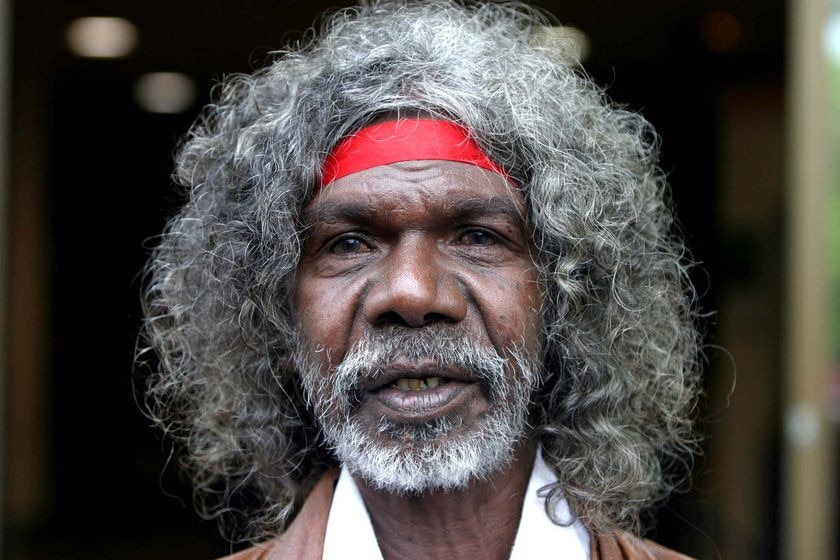

Australasian Cinema > actors >
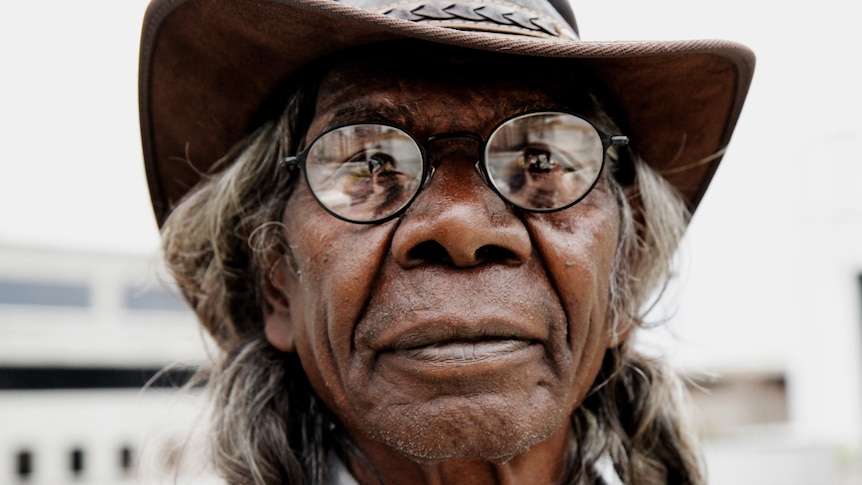
Matt Garrick, ABC 30 November 2021
David Gulpilil was famous for roles in Crocodile Dundee, Rabbit Proof Fence and The Tracker, among many others. (Jeremy Story Carter, ABC RN)

At just 17 years old, when David Gulpilil first touched down in Europe, he was the toast of the town—a young, handsome Aboriginal film actor from the remote Northern Territory who could hardly speak English.
The cameras adored him and the fans flocked to catch sight of this new star.
Nearly five decades later, the world now bids farewell to a prolific trailblazer who walked tall in two cultures and starred in landmark Australian films Crocodile Dundee, Rabbit Proof Fence, Storm Boy, Walkabout, The Tracker and many more.
The Yolngu actor, dancer and painter from Arnhem Land died at the age of 68.
Several years ago, Gulpilil had been diagnosed with lung cancer. He was a resident of Murray Bridge in South Australia.
In a rollercoaster career spanning from 1971 to 2018, Gulpilil transformed Australian cinema.
He opened the eyes of audiences across the Western world to strong, positive depictions of Aboriginal Australia and eventually became, as Rabbit Proof Fence director Phillip Noyce once dubbed him, "arguably the most experienced and accomplished film actor in Australia"
As a teenager, Gulpilil was already seen as the best traditional dancer in the Arnhem Land community of Maningrida.
In 1969, his dancing prowess saw him discovered by British filmmaker Nicolas Roeg and chosen for a key role in his avant-garde outback film, Walkabout.
"I thought I was going to be a cowboy in a movie, like John Wayne," Gulpilil told filmmaker Darlene Johnson for the documentary One Red Blood in 2002.
During his first feature shoot, Gulpilil spoke little English, having grown up speaking various Indigenous languages.
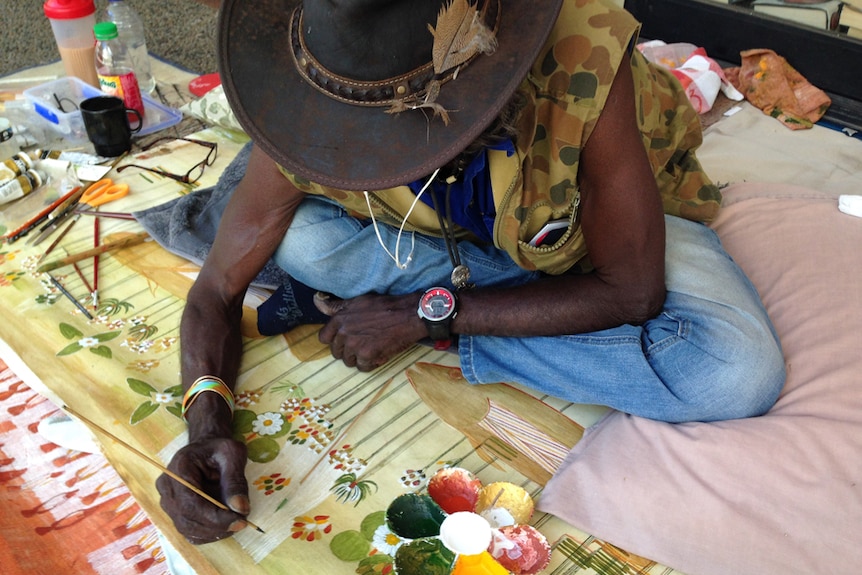
Actor, dancer and painter David Gulpilil has died after a career spanning five decades. (ABC News: Emma Masters)
But he proved himself a natural in front of the camera, exuding, as actor Jack Thompson once put it, something "dynamically attractive, and sexy".
"I think it was the first time I'd seen the Aboriginal culture presented on-screen as not only interesting, but dynamically attractive," Thompson said.
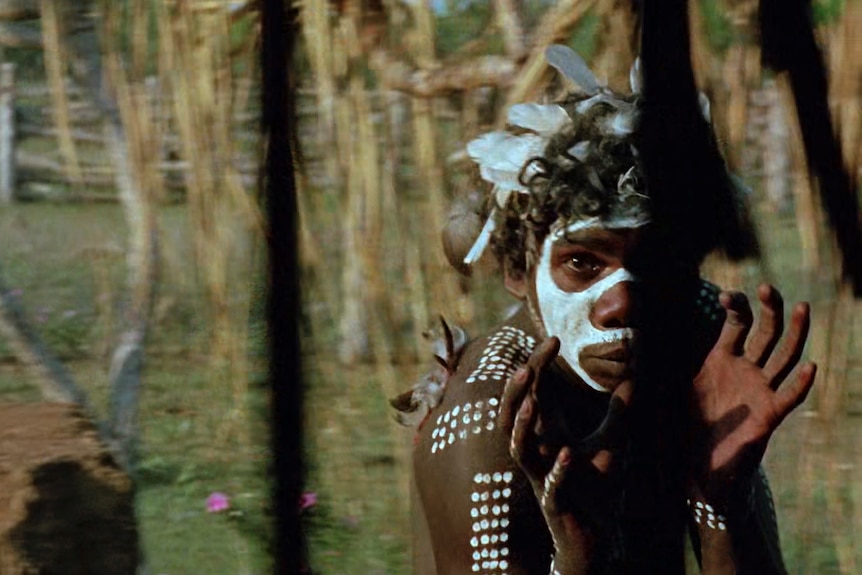
At the time Gulpilil was cast in Walkabout, non-Indigenous actors were still being cast as Indigenous characters (Supplied: ABCG Film)
Until this point, his early days had been spent out in the bush, hunting, dancing and studying at the Maningrida school.
"First time I saw white people, I didn't know where they come from: I thought they was a ghost, all paint up in white paint," Gulpilil said in One Red Blood.
One of his Maningrida schoolmates, Don Wilton, remembered a young man who would "go out hunting with his father, and he was a great hunter as well".
"[Gulpilil] didn't have any English name, so we gave him that English [first] name, back in 1965 or '66," Mr Wilton told ABC in Maningrida.
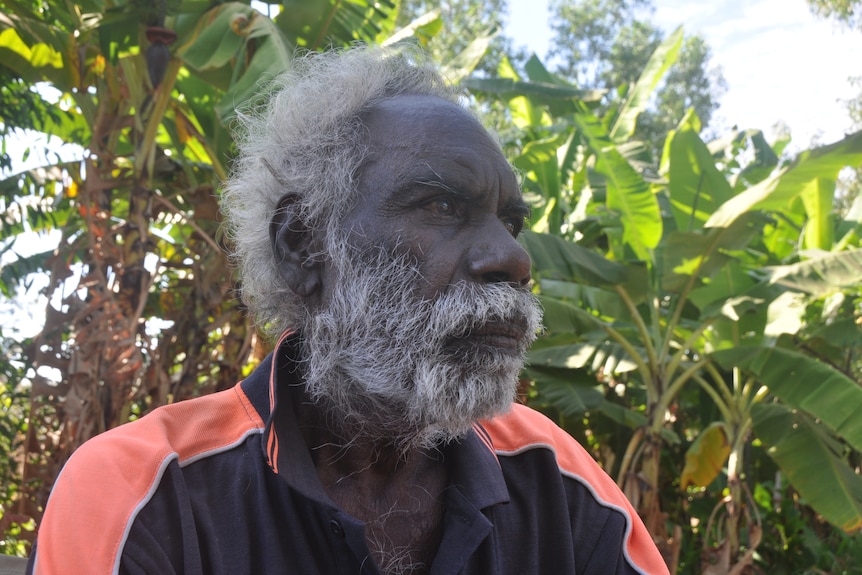
Don Wilton went to school with Gulpilil in Maningrida. (ABC News: Matt Garrick)
Soon after his experience on Walkabout, the Western world exploded into colour in front of him.
He was flown to Europe, where he met with Queen Elizabeth II at Buckingham Palace, as well as Bruce Lee, and travelled to France to walk the red carpet at the Cannes Film Festival.
But he remained a man planted firmly in two worlds—when he wasn't at a shoot or travelling to attend premiere galas or awards, Gulpilil could often be found with family around the remote community of Ramingining, more than 500 kilometres from Darwin.
"We seen lots of American movies, you know like westerns, cowboys, spies and all that — but [Gulpilil] was acting in traditional way, in Aboriginal way," Mr Wilton said.
Gulpilil's early films were a breakthrough in many respects.
He was offering his Yolngu culture to the world—a big-screen depiction unlike any that cinema audiences had ever seen.

Aboriginal actor David Gulpilil changed the face of Australian cinema. (Terry Trewin: AAP)
"[He] has been absolutely critical at representing modern Australia in the cinema, which is, after all, the biggest art form in the world," academic Marcia Langton once said.
"Also, in his own charismatic way, [he was] undermining the stereotypes that were forced upon him."
In 1986's Crocodile Dundee—one of Australia's biggest ever film exports to the American market and a movie he would later decry as "bullshit"—Gulpilil played the role of Neville Bell, a citified tribal man who had returned to the Top End to perform ceremony with his family.
In Storm Boy (1976) he was the lovable Fingerbone Bill, a role through which he captivated the nation's schoolchildren, who watched him teaching his traditional knowledge to a small South Australian lad in the Coorong.
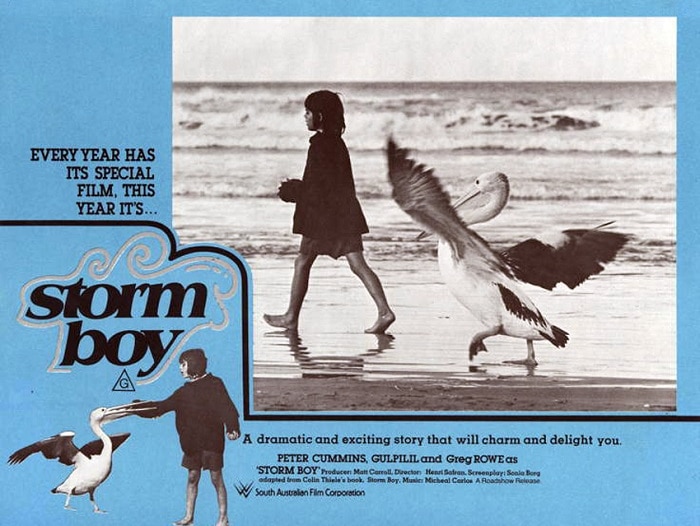
Publicity material for the 1976 movie. (Source: Filmink )
In 2002's Rabbit Proof Fence, he was the steely-eyed and state-sponsored tracker Moodoo, responsible for hunting down three little Stolen Generation girls who had escaped from a settlement.
In cult film Mad Dog Morgan (1976) he played offsider to Dennis Hopper's title character—a wild bushranger causing chaos in the Victorian scrub.
In 2008, he had a role in Baz Luhrmann's romantic epic Australia, shot in the Kimberley, in which he played an Aboriginal elder named King George.
The Order of Australia medal recipient achieved his first lead role in director Rolf de Heer's 2002 outback opus The Tracker.
![]()
Gulpilil in a still from The Tracker. (Supplied)
His long, winding film biography also included Aussie cinematic gems like Satellite Boy, The Last Wave, Goldstone and The Proposition.
He was also known for his appearances in television shows such as Homicide, Boney and Matlock.
By his own accounts, Gulpilil also dabbled in the universe of celebrity excess—he partied with Beatle John Lennon, smoked weed with Bob Marley and had "crazy" times with Hopper.
To him, acting could be "a piece of cake".
"When the camera rolls, I be someone else," he said while shooting The Tracker.
Some of arguably his best and most important cinematic work was a series of films shot by de Heer, starting with The Tracker, to Ten Canoes—which he narrated—and leading to the semi-autobiographical Charlie's Country, which delved into the challenges of modern Aboriginal life lived between NT towns and the Arnhem Land bush.
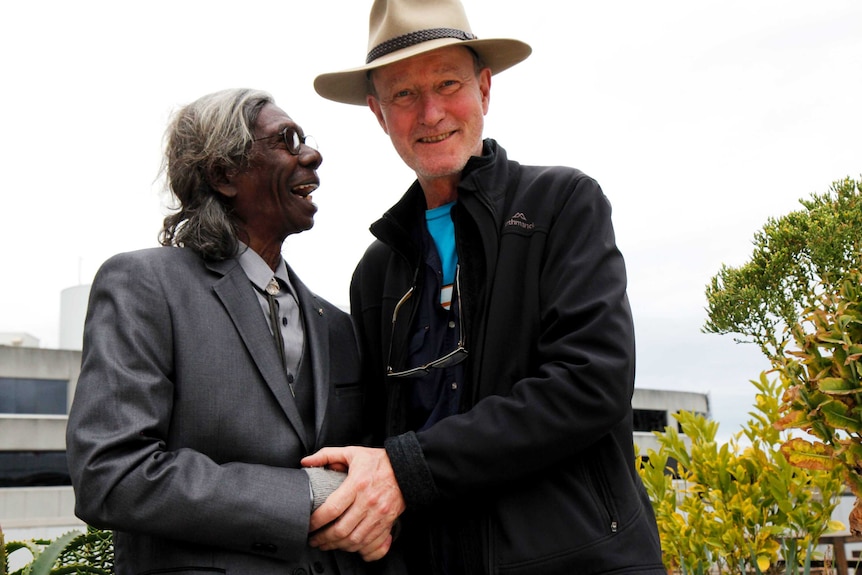
Actor Gulpilil and long-time collaborator director Rolf de Heer. (ABC Radio National: Jeremy Story Carter)
These were challenges which were often all too real for Gulpilil.
After being introduced to grog and ganja on the set of Walkabout when he was still a teenager, the actor wrestled with the demon of alcoholism throughout his life.
It was a struggle which led to his lowest moments: camping in the long grass as an itinerant in Darwin and being thrown into the NT's Berrimah jail for assaulting his wife.
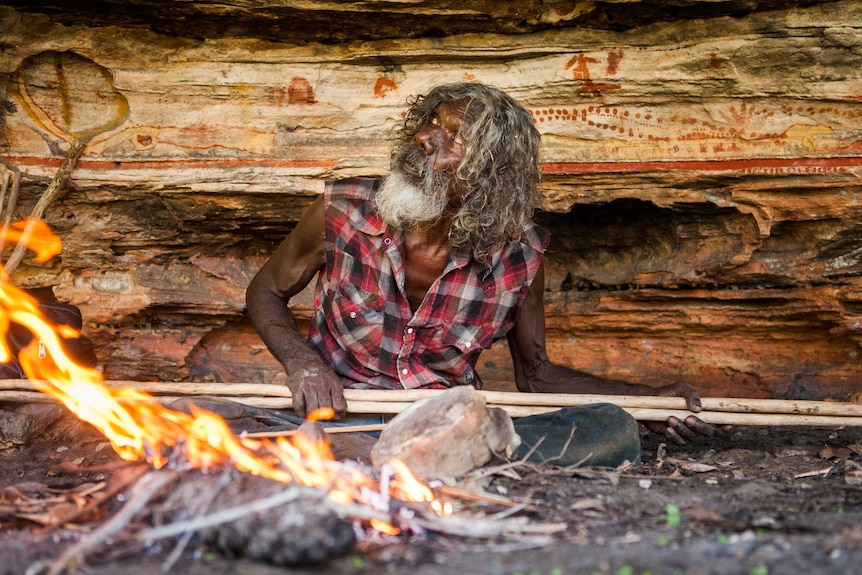
Gulpilil in Charlie's Country, a semi-autobiographical film about modern challenges faced by Aboriginal people in the NT. (Supplied)
Although he made hundreds of thousands of dollars for his high-profile movie roles, at times he remained penniless, living in a shack constructed from corrugated iron he'd scrounged from the tip.
"When I get paid for a film, I share with family, that's what I do with my money … I could've been a million-dollar man," he said in One Red Blood.
"Big name, no blanket."
During his later years, public appearances—and film roles—became scarcer.
In 2013, he danced onstage at the National Indigenous Music Awards in Darwin, showcasing a smaller, post-prison frame than the tall, curly-headed and powerful figure he once presented.
In 2018, due to ill health, he was forced to pull out of a main role in director Stephen Johnson's outback Territory epic High Ground starring Jack Thompson, which would ultimately be released in 2020.
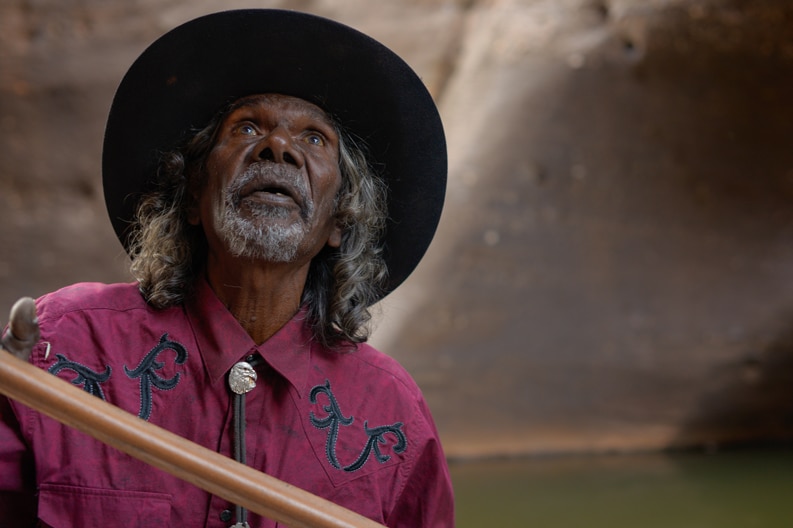
Gulpilil in a scene from Goldstone, one of the more recent films from his extensive canon.
In recent years, rumours of his lung cancer persisted.
In 2019, Gulpilil was presented with a lifetime achievement award at the annual NAIDOC Awards.
His daughters accepted the award on his behalf, due to his frailty.
In a video acceptance speech in which he revealed he was dying from cancer, a greyed Gulpilil told the audience: "To everyone, thank you for watching me … I will still remember you even though I am now gone forever."
In 2021, Gulpilil appeared in what was promoted as his swan song—a documentary about his life.
Narrated by Gulpilil himself and directed by another of his long-time collaborators Molly Reynolds, who is married to De Heer, the film chronicles his life and singular achievements as an Australian actor.
In the film, seen visibly ailing while under around-the-clock care in Murray Bridge, he appears as a man calmed by his connection to a rich tradition and culture, comfortable with his own mortality.
An initiated Yolngu man of the Mandhalpuyngu, Gulpilil never lost his connection to language, song, law and country.
"I am the Mandhalpuyngu … the water goanna dreaming, and my sons and daughters too," he once said.
"Where is promised land—there is Mandhalpuyngu."
He is survived by family in Ramingining, Maningrida and Darwin, and his long-term carer Mary Hood, in Murray Bridge.
NFSA curated collection.
Garry Gillard | New: 5 July, 2017 | Now: 29 March, 2022